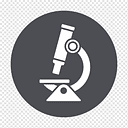Healthcare Third-Party Administrators (TPAs) have emerged as pivotal entities that bridge the gap between employers and health service providers
In today’s complex healthcare landscape, Healthcare Third-Party Administrators (TPAs) have emerged as pivotal entities that bridge the gap between employers and health service providers. For businesses, particularly those with limited resources, TPAs offer a sophisticated and effective solution for managing employee health benefits. This article delves into the myriad advantages of partnering with a Healthcare TPA, illustrating how they can drive both financial efficiency and enhanced employee well-being.
Cost Management and Optimization
Healthcare costs constitute a significant portion of any business’s expenditures. The expertise of TPAs in this realm cannot be overstated. These administrators possess in-depth knowledge of the healthcare market, enabling them to negotiate superior rates with insurance providers and healthcare networks. By meticulously analyzing a company’s current healthcare spending, TPAs identify areas where cost reductions are possible without sacrificing the quality of care. This cost-management strategy results in substantial savings and allows businesses to allocate resources more effectively.
Customization of Health Plans
The diversity within a company’s workforce necessitates a flexible approach to healthcare benefits. A one-size-fits-all plan is often inadequate. TPAs collaborate with businesses to design bespoke health plans tailored to the specific needs of their employees. This customization can include creating plans that accommodate various demographics, incorporating wellness programs that promote healthy living, and ensuring that the health benefits package is both comprehensive and cost-effective. The ability to tailor health plans ensures that employee needs are met while adhering to the company’s financial constraints.
Navigating Compliance and Regulation
The regulatory environment surrounding healthcare is complex and ever-evolving. Ensuring compliance with laws such as the Affordable Care Act (ACA) and the Employee Retirement Income Security Act (ERISA) is a daunting task for many businesses. TPAs specialize in this area, staying abreast of the latest legal developments and ensuring that the company’s health plans are fully compliant. By managing this aspect, TPAs help businesses avoid the severe penalties and legal ramifications associated with non-compliance, providing peace of mind and allowing employers to focus on their core operations.
Efficient Claims Processing
Handling healthcare claims is a labor-intensive process that can overwhelm in-house administrative staff. TPAs streamline this process by acting as intermediaries between employees, healthcare providers, and insurance companies. They ensure that claims are processed accurately and promptly, reducing the administrative burden on the company. This efficient claims management not only saves time and resources but also enhances employee satisfaction by providing a seamless and hassle-free claims experience.
Employee Advocacy and Support
Employees often find it challenging to navigate the complexities of their health benefits. TPAs play a crucial role in educating and supporting employees, helping them understand their options and make informed decisions. Through resources such as helplines, online portals, and personalized consultations, TPAs empower employees to utilize their benefits effectively. This advocacy not only improves employee satisfaction but also promotes better health outcomes.
Implementation of Wellness Programs
Preventive care and wellness initiatives are integral to maintaining a healthy workforce and reducing long-term healthcare costs. TPAs are adept at designing and implementing wellness programs that cater to the unique needs of the company’s employees. These programs may include health screenings, fitness challenges, mental health support, and chronic disease management. By fostering a culture of wellness, TPAs help improve employee morale, increase productivity, and ultimately, lower healthcare costs.
Data-Driven Insights
In the era of big data, TPAs leverage advanced analytics to provide valuable insights into healthcare usage and trends within the company. This data-driven approach allows businesses to make informed decisions about plan adjustments and wellness initiatives. By analyzing patterns in healthcare claims and employee health metrics, TPAs can proactively address issues and suggest improvements to the health benefits package. This continuous evaluation and optimization ensure that the health plan remains relevant and effective.
Strategic Outsourcing and Efficiency
One of the primary advantages of utilizing a TPA is the ability to outsource specialized tasks that the company may not have the expertise or resources to manage internally. TPAs assess the cost of labor, materials, equipment, and overhead for various operations, comparing these with the expenses associated with outsourcing. This strategic outsourcing allows businesses to operate more efficiently, focusing on core activities while relying on the TPA to handle complex administrative functions.
Long-Term Value and Sustainability
The partnership with a TPA is not merely a short-term solution but a long-term strategy that delivers sustainable value. As healthcare technology and regulations evolve, TPAs continuously adapt, ensuring that the company’s health benefits remain competitive and compliant. This ongoing partnership provides businesses with the assurance that their healthcare administration is in capable hands, allowing them to concentrate on growth and innovation.
Conclusion
Healthcare TPAs are indispensable allies for businesses seeking to provide comprehensive and cost-effective health benefits to their employees. Their expertise in cost management, plan customization, regulatory compliance, claims processing, employee advocacy, wellness programs, and data analytics positions them as essential partners in today’s dynamic healthcare environment. By collaborating with a TPA, businesses can navigate the complexities of healthcare administration with confidence, ensuring the well-being of their workforce and achieving financial efficiency. In an era of rapid technological advancement and regulatory changes, the role of TPAs will continue to grow, offering invaluable support to businesses striving to maintain a competitive edge.
